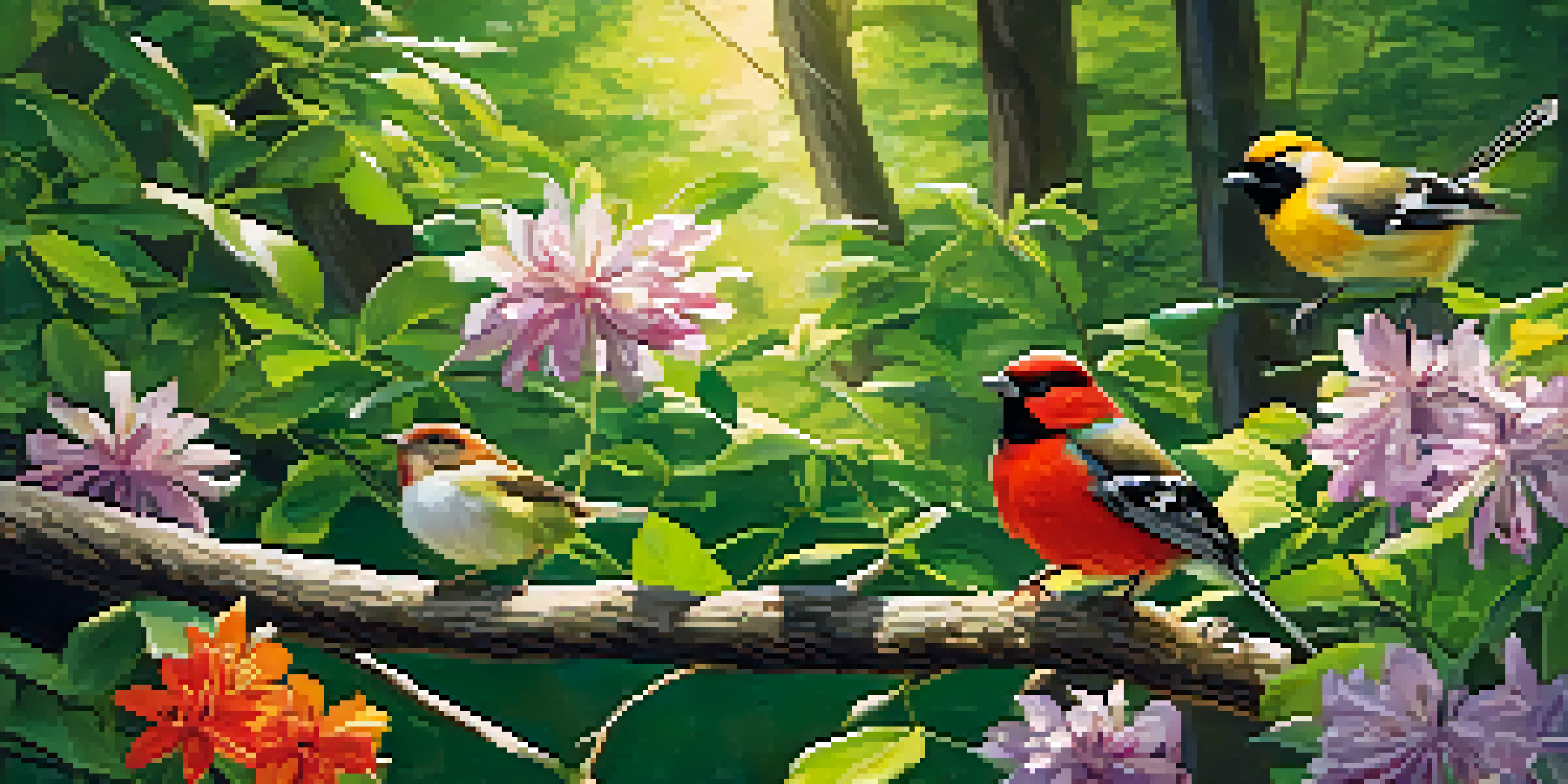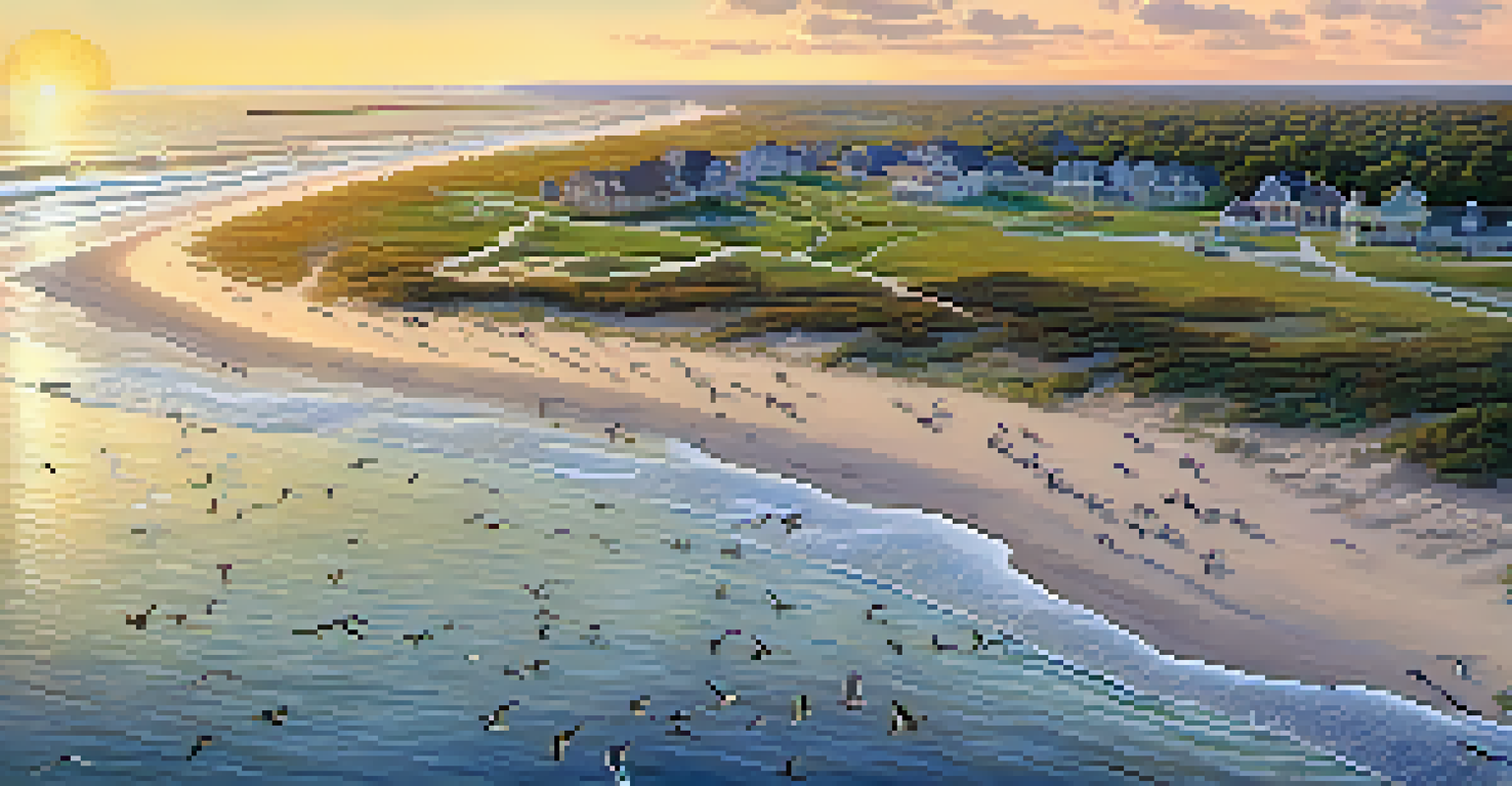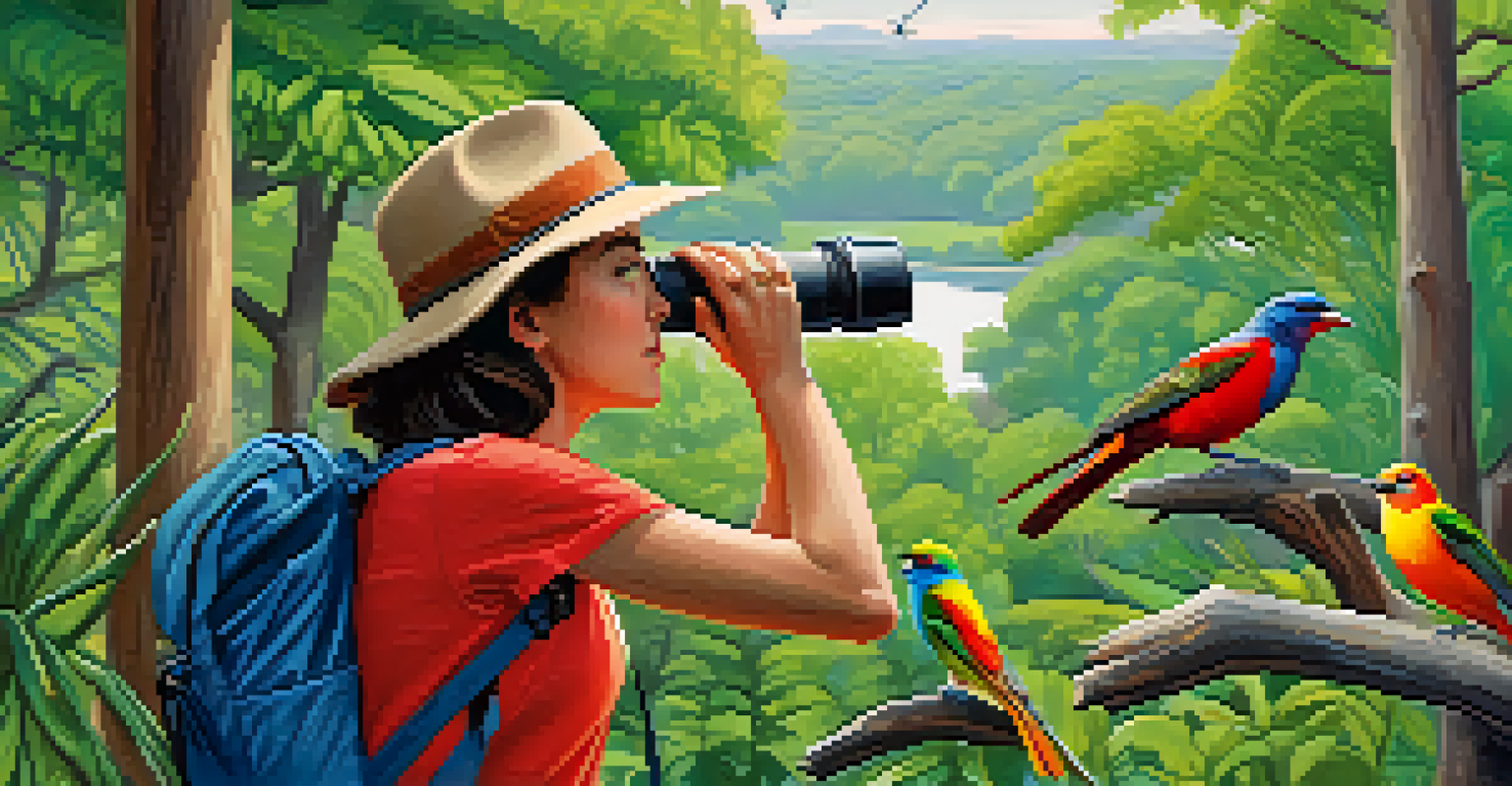Birdwatching and Nature Observation in NJ State Parks

The Joy of Birdwatching in New Jersey
Birdwatching is a rewarding hobby that invites you to connect with nature. New Jersey, with its diverse ecosystems, is a prime location for spotting a wide array of bird species. From the coastal shores to the dense forests, each park offers unique opportunities for both seasoned birders and beginners alike.
In every walk with nature one receives far more than he seeks.
Imagine standing quietly in a sun-dappled forest, the air filled with the sweet calls of warblers and sparrows. The thrill of spotting a rare bird can be exhilarating, turning a simple walk into an adventure. New Jersey's varied habitats support over 400 bird species, making every visit a potential treasure hunt.
Whether you're looking for the vibrant colors of a painted bunting or the majestic flight of a bald eagle, New Jersey parks are brimming with life. This engaging activity not only enhances your appreciation for wildlife but also encourages mindfulness and a deeper connection to the environment.
Top NJ State Parks for Birdwatching
New Jersey is home to a variety of state parks that cater to birdwatchers of all levels. One standout location is the Edwin B. Forsythe National Wildlife Refuge, known for its extensive marshlands and migratory bird populations. Here, you can often see herons, egrets, and various waterfowl, especially during migration seasons.

Another fantastic spot is the Cape May Point State Park, which serves as a critical stopover for migrating birds. The park offers scenic trails and observation platforms with breathtaking views of the beach, where birdwatchers frequently spot shorebirds and raptors. Cape May is often regarded as one of the best birdwatching locations in the country!
Birdwatching: A Nature Connection
Birdwatching in New Jersey offers a unique opportunity to connect with diverse ecosystems and over 400 bird species.
Don’t forget about the Spruce Run Recreation Area, where wooded trails and open fields invite you to explore. This park is a hotspot for nesting birds, particularly songbirds, making it an ideal location for springtime birdwatching. Each park has its own charm, ensuring that your birdwatching experiences will always be varied and exciting.
Essential Gear for Birdwatching
Getting started with birdwatching doesn’t require a lot of fancy equipment, but a few essentials can enhance your experience. A good pair of binoculars is crucial; they allow you to observe birds up close without disturbing them. Look for binoculars with an 8x42 magnification for a balance of clarity and ease of use.
Birds are indicators of the environment. If they are in trouble, we know we’ll soon be in trouble.
A field guide is another must-have for novice and experienced birders alike. These guides, which can be found in print or as mobile apps, help you identify birds by their appearance, calls, and habits. Being able to recognize the birds you see not only enriches your experience but also adds a sense of accomplishment.
Finally, consider keeping a bird journal to record your sightings and experiences. This personal log can help you track your progress and revisit special moments in nature. Documenting your adventures can deepen your appreciation for the natural world and encourage you to explore further.
Birdwatching Etiquette: Best Practices
While birdwatching can be an exhilarating experience, it’s essential to follow certain etiquette to protect wildlife and fellow enthusiasts. One fundamental rule is to maintain a respectful distance from birds, especially during nesting season. Approaching too closely can stress birds and disrupt their natural behaviors.
Additionally, it's important to stay on marked trails and avoid trampling vegetation. Many birds rely on specific habitats for nesting and feeding, and your actions can impact their survival. Respecting these areas ensures that both you and future birdwatchers can enjoy the beauty of these parks for years to come.
Top Parks for Birdwatching
New Jersey's state parks, like Cape May Point and Edwin B. Forsythe, provide ideal settings for birdwatchers of all skill levels.
Lastly, sharing your knowledge and passion for birdwatching with others fosters a sense of community. Whether through guided walks, workshops, or social media, encouraging others to appreciate birds helps to promote conservation and a deeper understanding of our environment.
Seasonal Birdwatching Opportunities
Each season in New Jersey presents unique birdwatching opportunities, and knowing what to expect can enhance your experience. Spring is a vibrant time, as migratory birds return to nest, filling the air with their songs. This is the perfect season for spotting colorful warblers and thrushes as they arrive.
Summer offers the chance to observe nesting behaviors and fledglings learning to fly. Many parks are bustling with activity as parents care for their young, providing a different but equally exciting perspective on birdlife. Keep an eye out for juvenile birds, which often appear disheveled and clumsy yet full of energy.
Fall is a spectacular time for migration, with flocks of birds journeying south. Birdwatchers can witness the stunning sight of hawks and other raptors soaring overhead during this time. Winter, while quieter, offers unique opportunities to see migratory waterfowl and hardy species that stay year-round, such as cardinals and chickadees.
Joining the Birdwatching Community
Engaging with the birdwatching community can greatly enhance your experience and knowledge. Joining local birdwatching clubs or online forums allows you to connect with fellow enthusiasts who share your passion. These groups often organize outings, workshops, and events that provide opportunities to learn and explore new areas.
Social media platforms also offer a wealth of information and community engagement. You can follow birdwatching pages, participate in challenges, or share your own sightings and photographs. This interactive element can inspire you and introduce you to new techniques and birdwatching strategies.
Community and Conservation Efforts
Engaging with the birdwatching community enhances experiences and fosters conservation efforts to protect bird habitats.
Participating in citizen science projects, such as the Audubon Society’s Christmas Bird Count, allows you to contribute to important research while enjoying the outdoors. These projects help track bird populations and migrations, ensuring that birdwatching is not just a personal hobby but also a way to support conservation efforts.
Conservation and the Future of Birdwatching
As birdwatchers, we have a unique responsibility to be advocates for the birds and their habitats. Many species are facing threats from habitat loss, climate change, and pollution. By practicing sustainable birdwatching and supporting conservation initiatives, we can play a crucial role in protecting these beautiful creatures.
Supporting local and national conservation organizations is one way to make an impact. These groups work tirelessly to preserve habitats, educate the public, and influence policies that benefit wildlife. Your involvement, whether through donations or volunteer work, helps ensure that future generations can enjoy birdwatching.

Moreover, raising awareness about the importance of birds and their ecosystems can inspire others to get involved. Sharing your experiences and knowledge can motivate friends and family to appreciate and protect nature. Together, we can create a healthier planet for birds and people alike, making birdwatching not just a hobby, but a powerful tool for change.